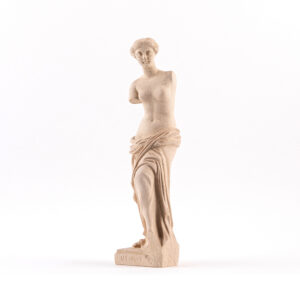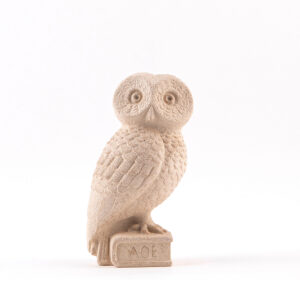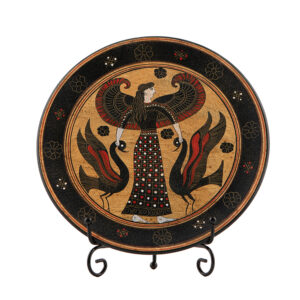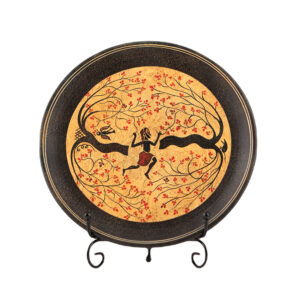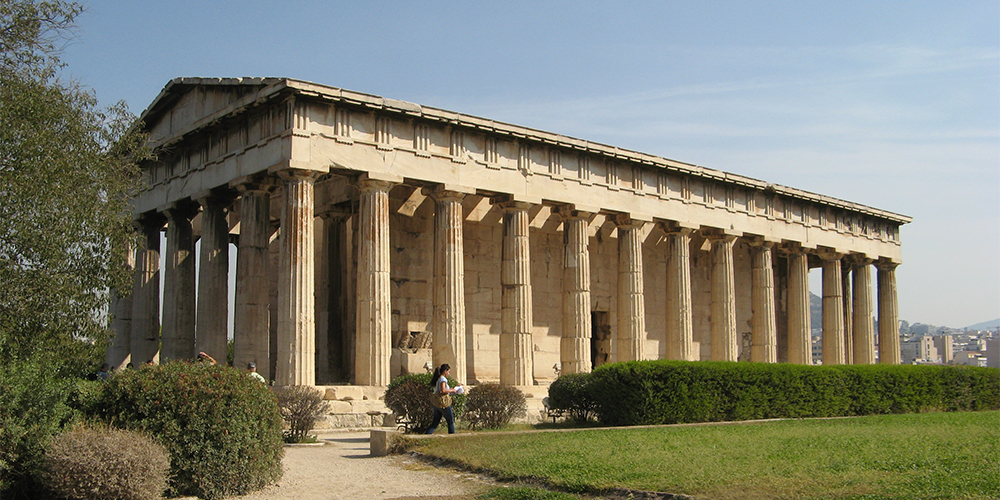
Ascending to Olympus: Unveiling the Majestic Gods and Goddesses of Ancient Greek Religion
A journey into the realm of ancient Greek religion and the powers and domains of the majestic Olympians. From Zeus, the mighty king of the gods, to Aphrodite, the goddess of love and beauty, this comprehensive guide will introduce you to the fascinating world of ancient Greek mythology.
Ancient Greek religion was a complex system of beliefs and practices that played a central role in Greek society. It shaped their understanding of the world, their values, and their relationship with the divine.
The gods and goddesses of ancient Greek religion were not just abstract figures; they were living, breathing entities that interacted with humans in profound ways. They were seen as powerful forces that could influence the course of human events, and their favor was sought through prayers, sacrifices, and rituals.
Let’s take a look at the twelve Olympians and explore their unique attributes, roles, and significance in ancient Greek religion.
Zeus: The king of the gods, ruler of the heavens and the earth, and god of thunder, lightning, law, order, and justice
Zeus, the King of the Gods, was the chief deity of the Greek pantheon. He was the god of the sky, thunder, lightning, law, order, and justice. As the ruler of the gods, he was depicted as a majestic and powerful figure, often seated on a throne holding a thunderbolt. His symbols included the eagle, the oak tree, and the bull.
Zeus was the son of Cronus and Rhea, and he overthrew his father to become king of the gods. He was married to Hera, the goddess of women and marriage. However, he was also known for his many affairs with both goddesses and mortal women. His children included many of the most famous gods and heroes of Greek mythology, including Athena, Apollo, Artemis, Ares, Hephaestus, Aphrodite, Hermes, and Dionysus.
Zeus was a powerful and just god, but he was also known for his temper. He was often quick to anger, and he was not afraid to use his power to punish those who disobeyed him. However, he was also merciful, and he was often willing to forgive those who repented of their sins.
Zeus was a central figure in Greek mythology, and his stories were told and retold for centuries. He was a symbol of power, justice, and mercy, and he was worshiped by the Greeks as the king of the gods.
Hera: The queen of the gods, wife of Zeus, and goddess of women, marriage, family, and childbirth
Hera, the Queen of the Gods, was the wife of Zeus and the goddess of women, marriage, family, and childbirth. She was also the sister of Zeus, Demeter, and Poseidon. As the queen of the gods, she was depicted as a majestic and powerful figure, often seated on a throne holding a pomegranate. Her symbols included the peacock, the cow, and the lotus.
She was known for her beauty, intelligence, and power, but she was also jealous, vengeful, and prone to anger. She was often at odds with Zeus, her husband, and she was known for her persecution of his lovers and their children. However, she was also a devoted wife and mother, and she was a fierce protector of her family and her city, Argos.
Hera was a powerful and influential goddess, and she played a major role in Greek mythology. She was worshiped by the Greeks as the queen of the gods.
Poseidon: The god of the sea, earthquakes, and horses
Poseidon, the God of the Sea, was the second eldest of the twelve Olympians and the brother of Zeus and Hades. He ruled over the sea, earthquakes, and horses. He was depicted as a powerful and majestic figure, often riding a chariot drawn by hippocampi, mythical creatures with the head of a horse and the body of a fish. His symbols included the trident, the dolphin, and the horse.
He was known for his strength, power, and authority, but he was also feared for his temper and his ability to unleash devastating earthquakes. He was a patron of seafarers, fishermen, and horse breeders, and he was often invoked by sailors before setting sail.
He was involved in the Trojan War, the founding of Athens, and the creation of the island of Crete. He was also the father of many heroes and mythical creatures, including the Cyclops Polyphemus and the Minotaur.
Demeter: The goddess of agriculture, grain, and fertility
Demeter, the Goddess of Agriculture, was sister of Zeus, Hera, Poseidon, and Hades. She presided over the harvest, grain, fertility, and the sacred law. She was depicted as a mature and maternal figure, often holding sheaves of wheat or poppies. Her symbols included the wheat sheaf, the poppy, and the pig.
For the ancient Greeks, Demeter had a significant role in agriculture. She was responsible for ensuring the fertility of the land and the abundance of crops. Her annual festival, the Eleusinian Mysteries, was one of the most important religious celebrations in ancient Greece.
She was known for her nurturing and compassionate nature, but she was also capable of great anger and despair when her daughter, Persephone, was abducted by Hades. Her story is a powerful allegory for the cycle of life, death, and rebirth.
Demeter was a beloved and respected goddess by the Greeks. She was seen as a protector and provider, and she was essential to the survival of their society. Her story continues to resonate today, and she remains a symbol of fertility, motherhood, and the natural world.
Athena: The goddess of wisdom, handicraft, and warfare
Athena, the Goddess of Wisdom, Warfare, and Handicraft, was the daughter of Zeus. She was born fully grown and armed from Zeus's head, and she quickly became one of the most powerful and respected deities in the Greek pantheon. She was depicted as a beautiful and intelligent woman, often wearing a helmet and carrying a spear and shield. Her symbols included the owl, the olive branch, and the helmet.
She was known for her wisdom, courage, and strategic prowess, but she was also compassionate, just, and a skilled craftswoman. She was a patron of education, arts, and warfare, and she was often sought out for advice and guidance by both gods and mortals.
She was one of the main protagonists in the Trojan War, and she assisted many heroes in their quests, including Odysseus, Herakles, and Perseus. She was also the patron goddess of Athens, and she was credited with founding the city and protecting its citizens.
Athena was one of the most popular and beloved goddesses in ancient Greece. She was seen as a symbol of wisdom, strength, and justice, and she was admired for her intelligence, courage, and skill. Her legacy continues to inspire people today, and she remains a powerful symbol of female empowerment.
Discover more
The 12 Olympians: The 12 Supreme Gods in Greek Mythology - World History Encyclopedia
more moments
Recent Posts
Selected items from our collection
Share this:
- Click to share on Twitter (Opens in new window)
- Click to share on Facebook (Opens in new window)
- Click to share on LinkedIn (Opens in new window)
- Click to share on Reddit (Opens in new window)
- Click to share on Tumblr (Opens in new window)
- Click to share on Pinterest (Opens in new window)
- Click to share on Pocket (Opens in new window)
- Click to share on Telegram (Opens in new window)
- Click to share on WhatsApp (Opens in new window)

